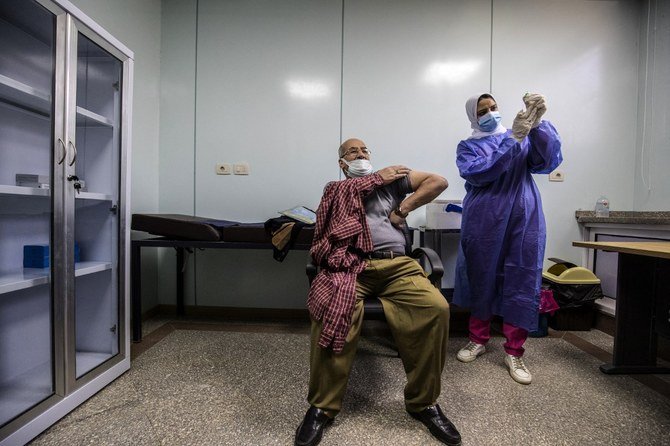Egypt has vaccinated about 14 million citizens against COVID-19, Mohamed Awad Taj El-Din, adviser to the president for Health and Prevention Affairs, has said.
Taj El-Din added that there has been an increase in demand to receive vaccines during the recent period, and that the state is working to provide the largest number of approved vaccines to citizens.
He said that there are about 1,100 vaccination centers, between youth centers, universities and Ministry of Health outlets, in Egypt. Citizens can visit them to receive vaccinations after completing the registration processes, he added.
Taj El-Din said that Egypt possesses a stockpile of vaccines that includes 31 million doses, with expectations of an increase in the quantities of the Sinovac vaccine, which is manufactured locally within the Vacsera factory.
The increase in vaccination numbers coincides with the decision by some Egyptian governorates to prevent people who visit government facilities from entering without showing health certificates proving vaccination.
This measure comes as part of several strategies taken by Egypt to reduce coronavirus cases, such as accelerating the pace of vaccine production, vaccinating university students and state employees, and moving to vaccinate 12 to 18 year olds.
Taj El-Din said that there are also negotiations with more than one foreign pharmaceutical company to manufacture further vaccines locally.
He said that Egypt has an expanded plan to vaccinate educational cadres in universities, workers and university students, in addition to general and technical education staff. The Ministry of Health announced earlier that the local production of vaccines will be doubled, and that production will reach 1 million doses per day.
Egyptian Minister of Health Hala Zayed said that there is now “no challenge” related to the lack of vaccines and that while the Ministry of Health is moving to vaccinate high school students, the Ministry of Education and Universities decided to prevent the entry of unvaccinated teachers and students.
“We are still in the fourth wave, and this calls on us to apply precautionary measures like social distancing and wearing masks, and staying away from gatherings, in order to limit this wave,” Taj El-Din said, adding that the fourth wave has been “less intense” than previous surges due to increased vaccinations and people committing to precautionary measures.

